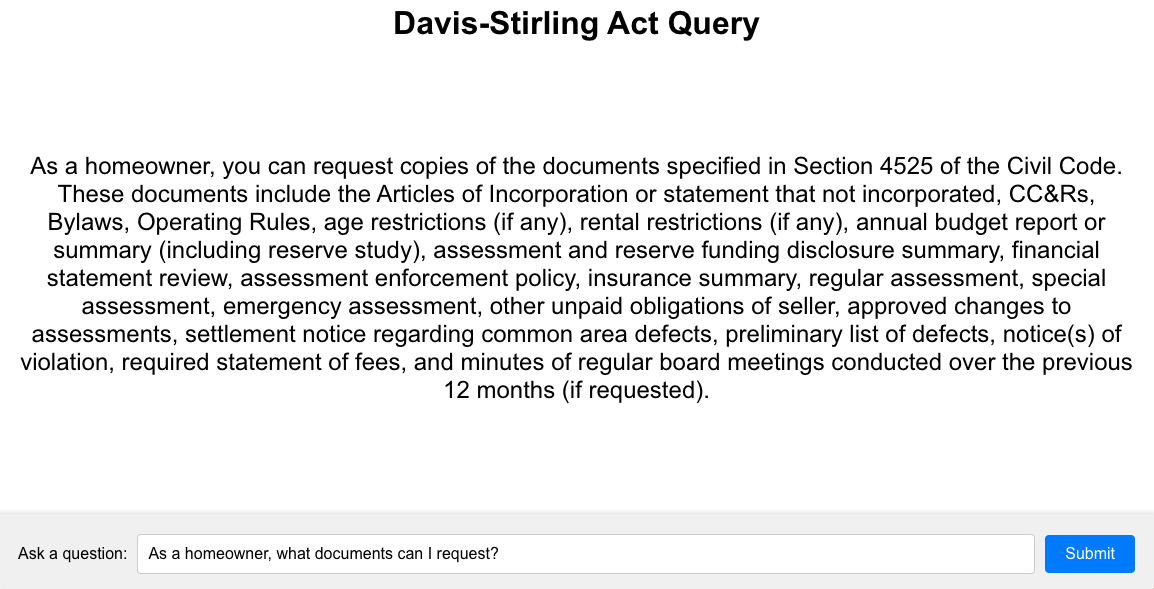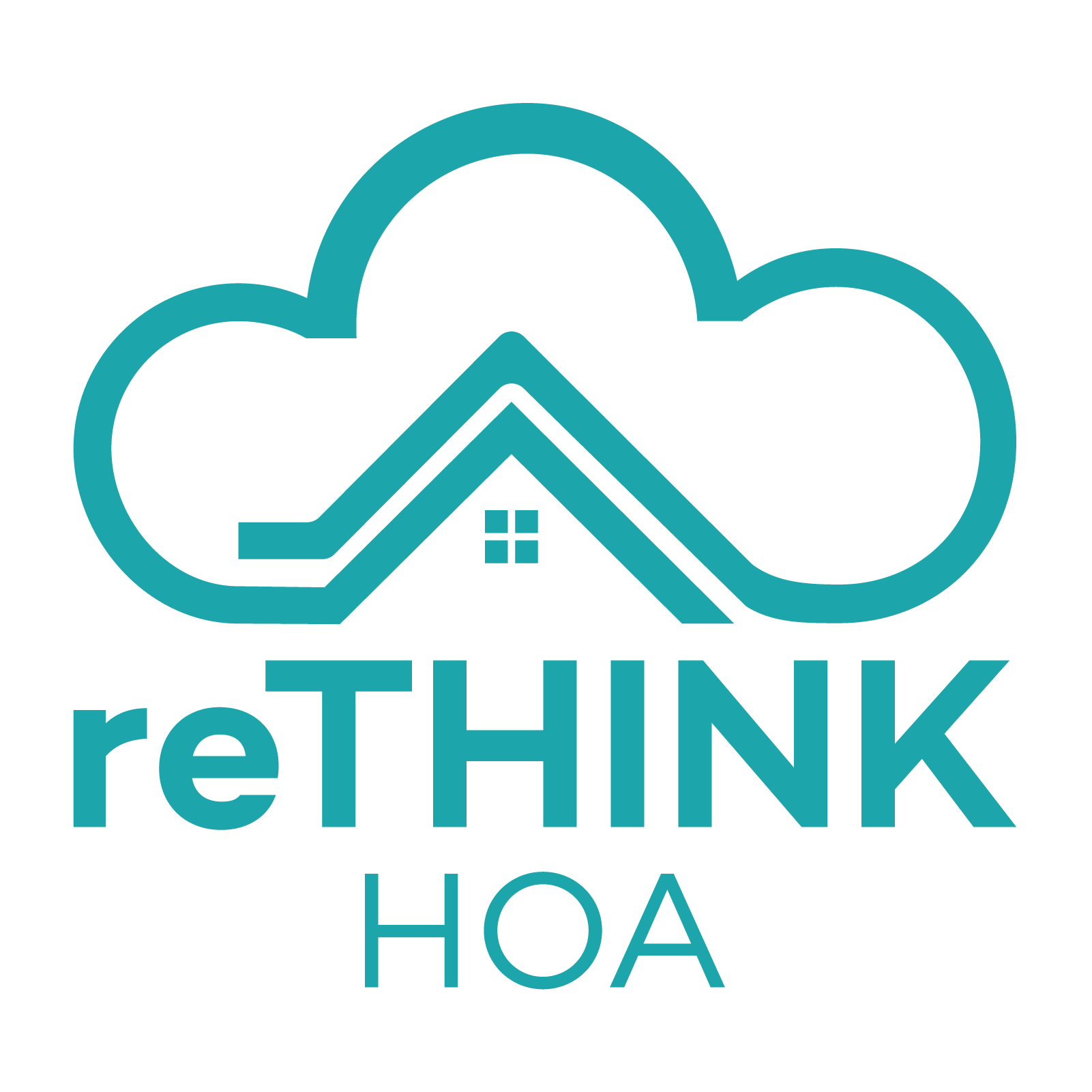Are you a homeowner or a Homeowners Association (HOA) board member overwhelmed by the intricacies of the Davis-Stirling Act? You are not alone. HOAs significantly contribute to managing and regulating their neighborhoods and residential developments. These non-profit organizations carry out various responsibilities that directly impact the quality of life within a community. In California, the Davis-Stirling Common Interest Development Act or Davis-Stirling Act ("Act") is a critical legislative piece governing HOAs. Understanding this Act is crucial for homeowners and HOA board members as it offers a clear structure for managing common interest developments (CIDs) and safeguards the rights of all members.

- The Davis-Stirling Act serves as a comprehensive framework, protecting homeowner rights and establishing structure for California's HOAs.
- Understanding the Act is crucial for ensuring fair treatment, resolving disputes, and promoting harmonious living within HOAs.
- HOAs are responsible for self-enforcing the Act's provisions through internal governance procedures and oversight.
- Simplify compliance with the upcoming Davis-Stirling ChatGPT Tool, providing homeowners and HOA boards with immediate and well-informed answers. Stay tuned for its release!
Unraveling the History of the Davis-Stirling Act
The Act was initially passed in 1985 after being authored by University of San Diego School of Law Professor Katharine N. Rosenberry and later endorsed by Assemblymen Lawrence W. "Larry" Stirling and Gray Davis. The Act was formulated in response to the rising need for legislation to properly manage the unique challenges posed by CIDs, which were becoming increasingly prevalent in California. Before the Act, the laws governing HOAs were scattered throughout the Corporations Code and the Civil Code, lacking the specificity necessary to guide these organizations effectively[1].
Why is the Davis-Stirling Act Important?
The Act is the cornerstone of HOA laws in California. It gives HOAs substantial authority to regulate and manage their CIDs, covering everything from financial management to dispute resolution. If you're involved in a California HOA, understanding the Act isn't just a good idea—it's crucial for you.
Let's explore a hypothetical scenario to illustrate its importance. Imagine you're a board member of an HOA in California, and a dispute arises between the association and a homeowner. The Act not only lays out the necessary steps for resolving such disputes but also delineates the rights and responsibilities of both parties. It's your roadmap to ensure fair treatment for everyone involved.
Who the Davis-Stirling Act Applies To
The Davis-Stirling Act applies to all forms of residential CIDs in California, including those in existence before the Act. If you're living in condominiums, cooperatives, and planned development communities or are part of an incorporated association under the Corporations Code, the Act applies to you.
Navigating the Key Provisions of the Davis-Stirling Act
The Act consists of eleven chapters, each containing several articles. These chapters cover a broad range of topics, including but not limited to, general provisions[3], the Act's application[4], governing documents[5], ownership and transfer of interests[7], property use and maintenance[8], association governance[9], finances[15], assessments and assessment collection[17], insurance and liability[19], dispute resolution and enforcement[20], and construction defect litigation[24]. Each of these provisions plays a pivotal role in the daily operations and governance of HOAs.
Davis-Stirling Act Table of Contents
Chapter 1. General Provisions...........................................§4000 - §4190
Chapter 2. Application of Act........................................... §4200 - §4202
Chapter 3. Governing Documents.....................................§4205 - §4370
Chapter 4. Ownership and Transfer of Interest...............§4500 - §4650
Chapter 5. Property Use and Maintenance.......................§4700 - §4790
Chapter 6. Association Governance..................................§4800 - §5450
Chapter 7. Finances...........................................................§5500 - §5502
Chapter 8. Assessments and Assessment Collection.........§5600 - §5740
Chapter 9. Insurance and Liability....................................§5800 - §5810
Chapter 10. Dispute Resolution and Enforcement............§5850 - §5986
Chapter 11. Construction Defect Litigation.......................§6000 - §6150
How Does the Davis-Stirling Act Impact You?
Homeowner Protections
The Davis-Stirling Act provides numerous protections for homeowners while setting standards for how HOAs should conduct their affairs. For instance, the Act requires HOAs to disclose several elements to homeowners, including financial statements[12] and information about upcoming board meetings[10]. It also sets forth the rights of homeowners to inspect specific HOA records[11].
Board Member and Officer Requirements
Simultaneously, the Act imposes particular requirements on HOA board members and officers. These include duties to act in the association's best interests[10], avoid conflicts of interest[13], and exercise reasonable care, diligence, and skill in executing their duties.
Dispute Resolution
The Act also outlines processes for internal dispute resolution[21] within HOAs. If disputes arise, homeowners and HOAs are encouraged to first use these internal processes, which are typically quicker and less costly than litigation.
In addition to internal mechanisms, the Act also provides guidelines for alternative dispute resolution options[22], such as mediation or arbitration, which should be used before court action[23].
Enforcement of the Davis-Stirling Act
The Act, while setting out clear rules for HOAs, does not have a dedicated enforcement body. Therefore, enforcing the Act depends on internal governance procedures and the vigilance and action of homeowners. Members have several options if an HOA board is non-compliant.
Internal Enforcement
HOAs are required to self-enforce many of the provisions of the Act through internal governance procedures and oversight. In situations where board members act punitively, incompetently, or go rogue, homeowners can undertake a variety of actions. They can attempt to resolve the issue using internal dispute resolution[21]. If unsuccessful, they can escalate to alternative dispute resolution[22], although this process typically involves attorneys and can be more costly.
Legal Actions by Homeowners
If internal procedures do not resolve the issue, homeowners can consider running for a position on the board or supporting other responsible candidates. A drastic measure, although disruptive and potentially relationship-damaging, is to recall the board. Lastly, homeowners have the legal right to litigate against their HOA for violations of the Act. However, litigation should be a last resort because it can be lengthy, expensive, and emotionally draining. In cases of significant violations of the Act, homeowners can file a complaint in small claims court.
Amendments to the Davis-Stirling Act
The Davis-Stirling Act is subject to amendments to meet the evolving needs of the CIDs. Since 1985, the Act has been amended many times and on January 1, 2014, the Act was completely renumbered and reorganized into Civil Code §4000-6150[1]. Notable amendments have included:
- Changes to voting procedures
- Clarification on assessment collection practices
- Requirements for more transparency in association financials
HOAs and homeowners must stay up-to-date with these changes to ensure compliance.
For example, Senate Bill 391 amends provisions of the Davis-Stirling Act to permit associations to hold board and membership meetings virtually, without designating a physical location where members may attend, if gathering is unsafe or impossible because the CID is in the area affected by a federal, state, or local emergency. This bill was signed by Governor Newsom on September 23, 2021, as Civil Code Section 5450.
Unlocking Compliance with the Davis-Stirling ChatGPT Tool Powered by reTHINK HOA
With the constant evolution of the Act, staying in the know can be a daunting task for homeowners and HOA boards alike. But worry no more - reTHINK HOA will revolutionize the way you navigate this complexity. Our innovative Davis-Stirling ChatGPT Tool, launching in the coming days, is tailored to provide immediate, well-informed answers to your questions about the Act.
Davis-Stirling ChatGPT Example

Whether you are a homeowner trying to decipher your rights, or an HOA board member aiming for smooth and efficient governance, the Davis-Stirling ChatGPT Tool will be your reliable ally. We believe that a well-informed HOA community paves the way for harmonious living. Sign up for the blog to get notified when the tool is available.
Final Thoughts
Understanding the Davis-Stirling Act is crucial for anyone involved in a California HOA. This comprehensive legislation sets out the rules and regulations for HOAs[6], provides protections for homeowners, and establishes standards for good governance and transparency.
While the Act can be challenging to comprehend due to its complexity and legal language, resources like the Davis-Stirling ChatGPT Tool powered by reTHINK HOA can simplify the task. By staying informed about the Act and its requirements, homeowners and HOAs can ensure compliance, reducing the risk of disputes and fostering a more harmonious community.
Staying up-to-date with amendments to the Act is essential for ongoing compliance and effective governance.
Understanding the Davis-Stirling Act is essential for ensuring a harmonious, well-managed, and compliant community in CIDs. Embracing available resources can help all parties better understand the Act and its implications.
Subscribe to our blog now to get notified of updates to the Davis-Stirling ChatGPT Tool.
Footnotes & References
- Adams | Stirling Professional Law Corporation. History of Davis-Stirling Act.
- Adams | Stirling Professional Law Corporation. Notice of Noncompliance.
- California Legislative Information. General Provisions.
- California Legislative Information. Chapter 2. Application of Act [4200-4202].
- California Legislative Information. Chapter 3. Governing Documents.
- California Legislative Information. Article 5. Operating Rules [4340-4370].
- California Legislative Information. Chapter 4. Ownership and Transfer of Interests.
- California Legislative Information. Chapter 5. Property Use and Maintenance.
- California Legislative Information. Chapter 6. Association Governance.
- California Legislative Information. Article 2. Board Meeting [4900-4955].
- California Legislative Information. Article 5. Record Inspection [5200 - 5240].
- California Legislative Information. Article 7. Annual Reports [5300 - 5320].
- California Legislative Information. Article 8. Conflict of Interest [5350-5350].
- California Legislative Information. Article 11. Emergency Powers and Procedures [5450].
- California Legislative Information. Chapter 7. Finances.
- California Legislative Information. Article 2. Use of Reserve Funds [5510-5520].
- California Legislative Information. Chapter 8. Assessments and Assessment Collection.
- California Legislative Information. Article 3. Assessment Collection [5700-5740].
- California Legislative Information. Chapter 9. Insurance and Liability [5800-5810].
- California Legislative Information. Chapter 10. Dispute Resolution and Enforcement.
- California Legislative Information. Article 2. Internal Dispute Resolution [5900-5920].
- California Legislative Information. Article 3. Alternative Dispute Resolution Prerequisite to Civil Action [5925-5965].
- California Legislative Information. Article 4. Civil Action [5975-5986].
- California Legislative Information. Chapter 11. Construction Defect Litigation [6000-6150].
- California Legislative Information. Civil Code.
- California Legislative Information. Corporations Code.
Disclaimer: The information provided in this article and through the Davis-Stirling ChatGPT Tool is intended for general informational purposes only. It does not constitute legal advice or a substitute for professional legal counsel. While we strive to provide accurate and up-to-date information, we make no guarantees regarding the applicability or accuracy of any information provided. Users are encouraged to consult with a qualified attorney or legal professional for advice about their specific situation. reTHINK HOA is not responsible for any actions based on the information provided through the Davis-Stirling ChatGPT Tool or in this article.






